Gardeners Lucy Hutchings And Kate Cotterill On Their ‘She Grows Veg’ Community
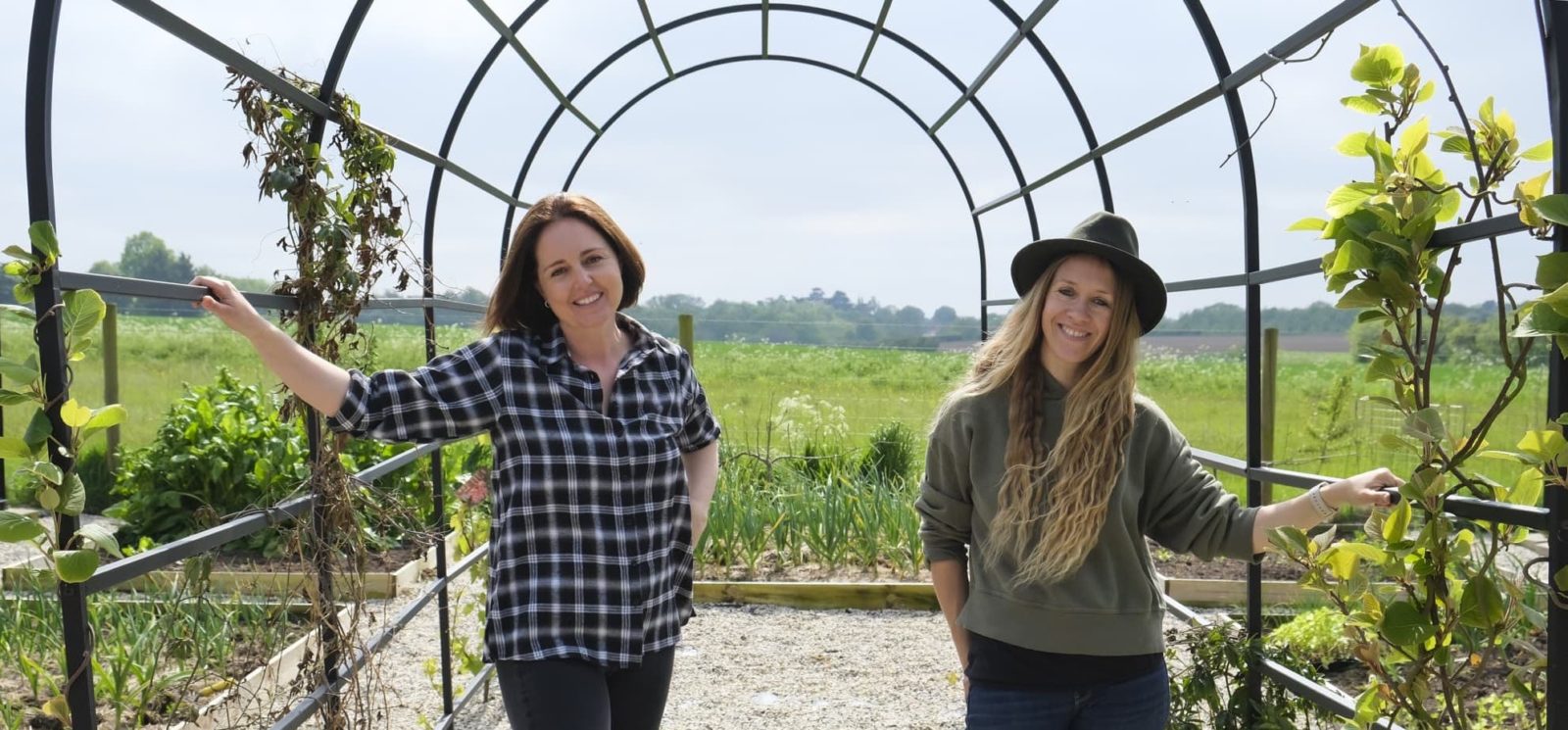
Lucy Hutchings, better known as @shegrowsveg on her socials, has been sharing her edible plant-growing journey online since 2017.
This year, with the help of fellow Horticulturist, Garden Designer and vegetable enthusiast Kate Cotterill, the pair have turned the ‘She Grows Veg’ community into a garden design business and garden brand.
With their first show garden coming up imminently, Kate & Lucy are also busy planning a new website, podcast episodes, online vegetable growing courses and a seed range that will all be available later this year.
We learn all about them and how they are embarking on this new journey together in their own words.
Please note that the imagery featured in this article is provided courtesy of Lucy Hutchings & Kate Cotterill from She Grows Veg.
How Did You Both Get Into Gardening?
“I’ve always grown some food throughout my life, but I never classed it as a hobby,” says Lucy. “I think I just liked any type of plant that was edible in some way.”
“Previously I went to art school and then ran a fashion label for a decade, so I had a completely different life that was very removed from horticulture. During this time, I tried to grow herb and vegetable gardens even though I didn’t really know what I was doing at all – I just loved it.
“I left fashion because it was stressful and I wasn’t really enjoying it. I later went through a really stressful period and it was food growing that I turned to as something to make me happy, as it was completely removed from everything that was going on.
“I started researching heirloom edibles and retrained in horticulture. I did my RHS Horticulture diploma and a course in garden design at Beth Chatto school, which is where I met Kate, and I have never looked back.
“I started my Instagram account @shegrowsveg when my interest in growing unusual edibles properly began and here we are, several years down the line!”
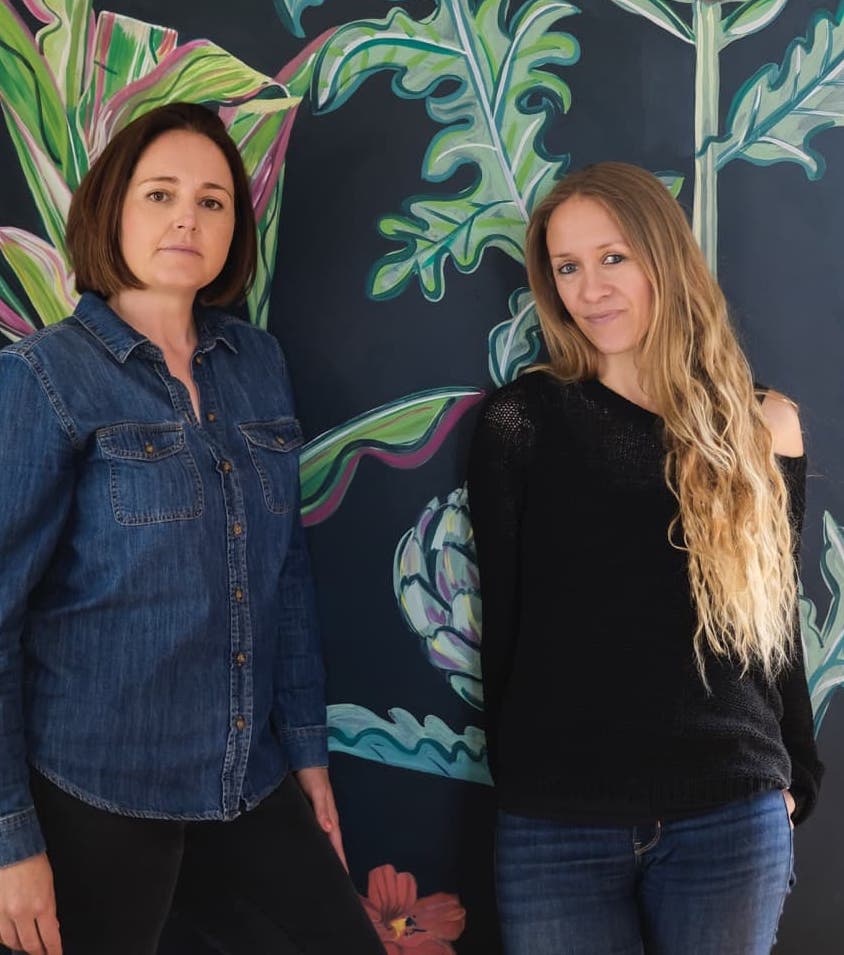
Kate’s introduction to gardening followed a very different path, as she shares:
“It’s awful to use sowing analogies, but the seed was sown quite a long time ago,” she says. “My husband and I bought our first property in Brixton 20 years ago and it had a tiny garden, but the minute I had that, I started to figure out what I could grow there and what I could do with the plot.
“Every house and garden I’ve bought since then has been an absolute wreck, so I’m the queen of renovating a piece of land covered in rubble, brambles and nettles and making it into something lovely.
“As Lucy said, we qualified together about 6 years ago at Beth Chatto. We’d never met before, but we were from the same area and were living down the road from each other. We sat next to each other on the first day of a year-long course and just hit it off.
“I’d been doing a lot of garden design on the side of my marketing job for friends and a few private clients, but Lucy’s been going solo since we graduated. She put a shoutout for volunteers for her Gardeners’ World Live garden, so I sent her a message about helping out.
“We went out for a coffee about two days later, started chatting and, before I knew it, I’d quit my job and we decided to go into business together. I’m now 2 feet into this new adventure of ours and it’s been great.”
“It felt a little bit like fate,” Lucy adds. “Everything since that initial conversation has just slotted so perfectly into place.”
How Does The Design Process Change When There’s Two of You?
“Between the two of us, we’ve got complementary skill sets, so I think the sky’s the limit,” shares Kate.
“Lucy’s got a creative background and I come from marketing, so I know how to set up and run a company. We both have a passion for garden design, so with all of that, I feel like it’s a match made in heaven.
“Every time we have an idea, we both tend to agree with it,” she continues. “I’m sure we’ll have our disagreements at some point, but we’re very much on the same page.
“Our vision is similar, we’re very ambitious for the company and we’ve got loads of sparkly, great ideas.”
What Is Your Process For Designing Gardens?
“We feel quite strongly that it’s really important that people start growing some of their own food as there are so many more benefits to it than people realise,” says Lucy. “If more people embraced it it can have a really positive impact on the planet.
“We have so many gardeners in this country that are really passionate, but they often want a really beautiful space and are ornamental gardeners. Ornamental gardening is way more popular in this country than food growing is. It’s certainly more aspirational.
“Having come into horticulture relatively late on and from a background in design, I’ve never really understood why there’s this big divide between grow-your-own and ornamental gardening. They don’t tend to cross over, so that’s where we feel we fit in and what we want to do is blur that line.
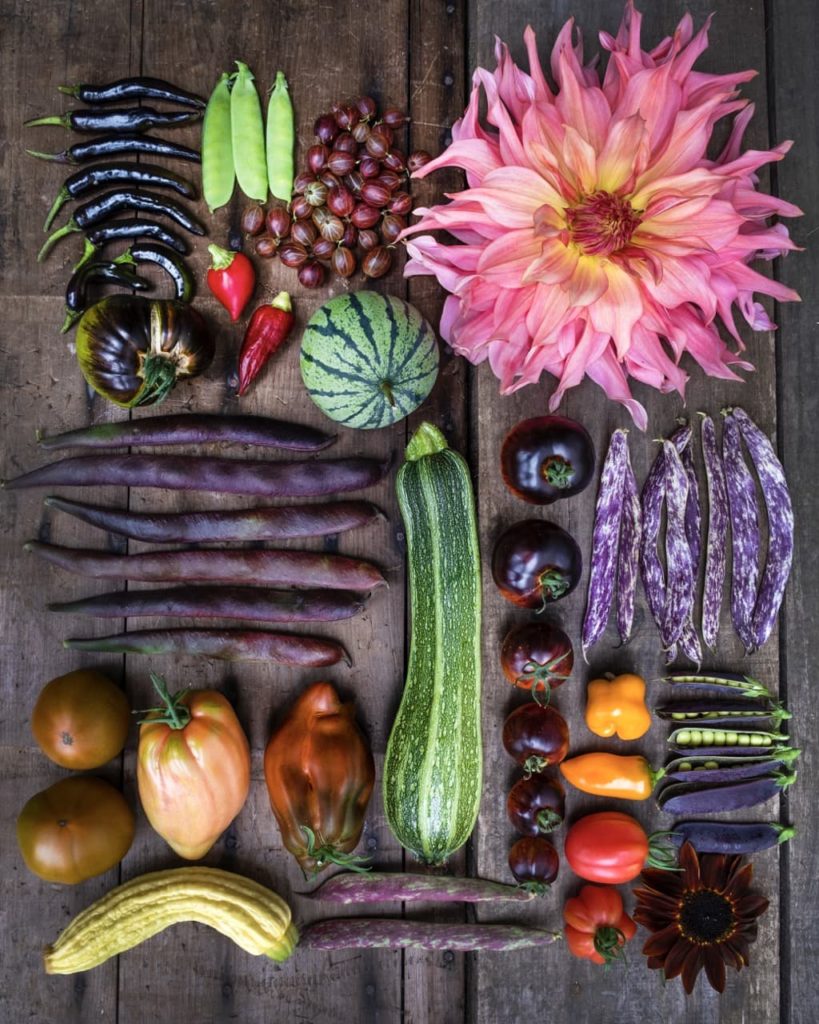
“We think gardens should be beautiful and we want to be able to facilitate gardens that have a beautiful outside space that can also produce a really abundant harvest.
“We do use ornamental edibles or purely ornamental plants for pollinators in our designs, as they are really important, but we do try and promote harvesting in a garden in one way or another.
“What we want to help our clients do is understand how to make the right choice in planting for their space,” adds Kate. “For example, we want them to think about the sustainable choices they can make, such as installing ways to harvest rainwater into their garden design.
“Often, people who come to a design studio don’t tend to know a lot about gardening, so we feel we can help guide that process and get them thinking about the environment in their garden.”
How Important Is The Online Gardening Community To You?
I feel really lucky to be part of that community and for it to have been such a big part of my journey,” says Lucy. “It’s the new way for people to interact through gardening.
“I think there’s a whole new generation of gardeners who don’t go straight to gardening books for advice. They prefer to learn through other people’s experiences and through knowledge sharing in the community.
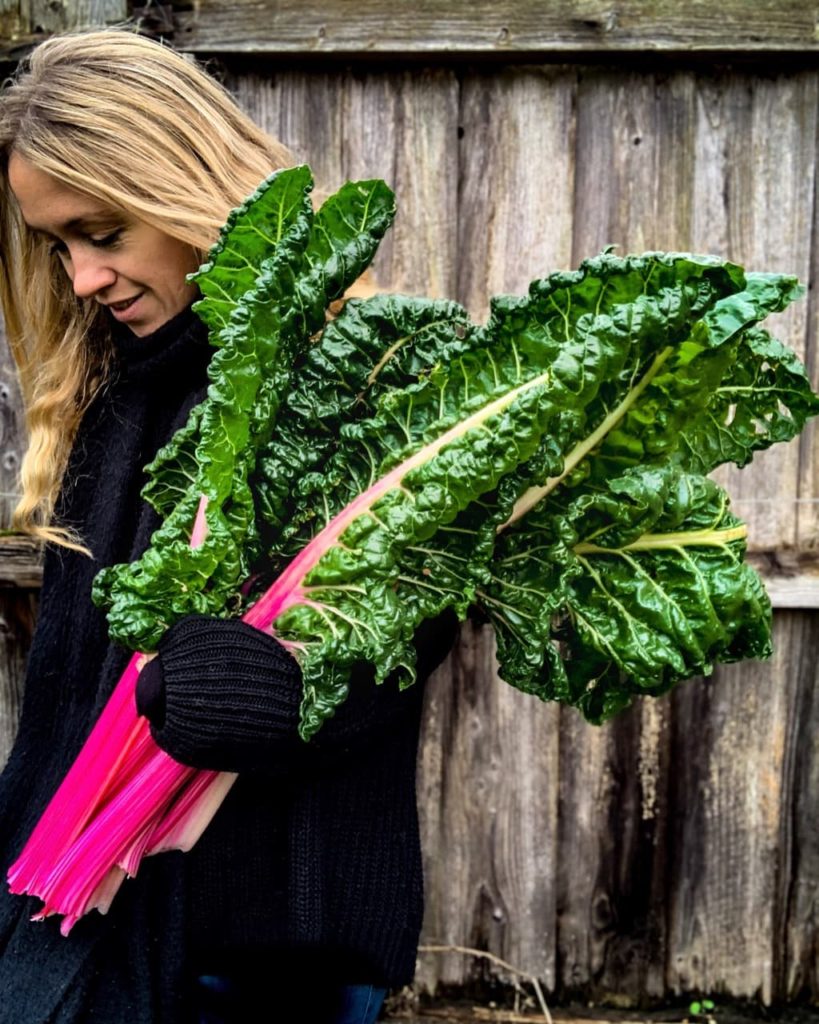
“I think the online gardening community is a bit like an old-school gardening club but on a really big scale, as people are there to support each other and answer questions which have been put out to a huge array of people.
“Yes, not all of the advice is going to be by the book, but actually, some people’s experiences of a certain extreme can really open your eyes to what’s possible.
“I think it is just starting to be understood how important the online gardening community is within the mainstream garden media. It’s a really important resource for new gardeners and it builds confidence more than other old-fashioned gardening advice tends to.”
Do You Have Anything Coming Up That You Want To Share?
“One of our big ideas is to launch a seed range by the end of the year,” shares Kate. “We’re in the process of exploring the best ways to do this and have been communicating with some brilliant individual growers for advice.
“We also have a show garden at BBC Gardeners’ World Live and, at the same time, we are going to be launching our new website. We’ve got a monthly newsletter that people can already sign up to which is going to be full of growing advice and tips.
“We’re launching a podcast in the autumn called the We Grow Podcast, where we will be going on a tour of the UK to learn about the latest trends in growing,” she adds. “We are going to be speaking to people at NASA who grow in space and horticulturists who are growing plants in unusual ways.
“We will also be launching some courses to teach people how to grow vegetables. As you can tell, we’ve got a lot of amazing stuff planned!”
What Advice Would You Give To Aspiring Gardeners?
“Don’t be afraid to get it wrong,” says Lucy. “A lot of people are terrified to try as gardening can be quite prescriptive and there are a lot of do’s and don’ts.
“There is nothing wrong with just having a go. Yes, sometimes it’s not going to work, but every garden has its own little microclimate, so what someone says works for them is not always going to work for you.
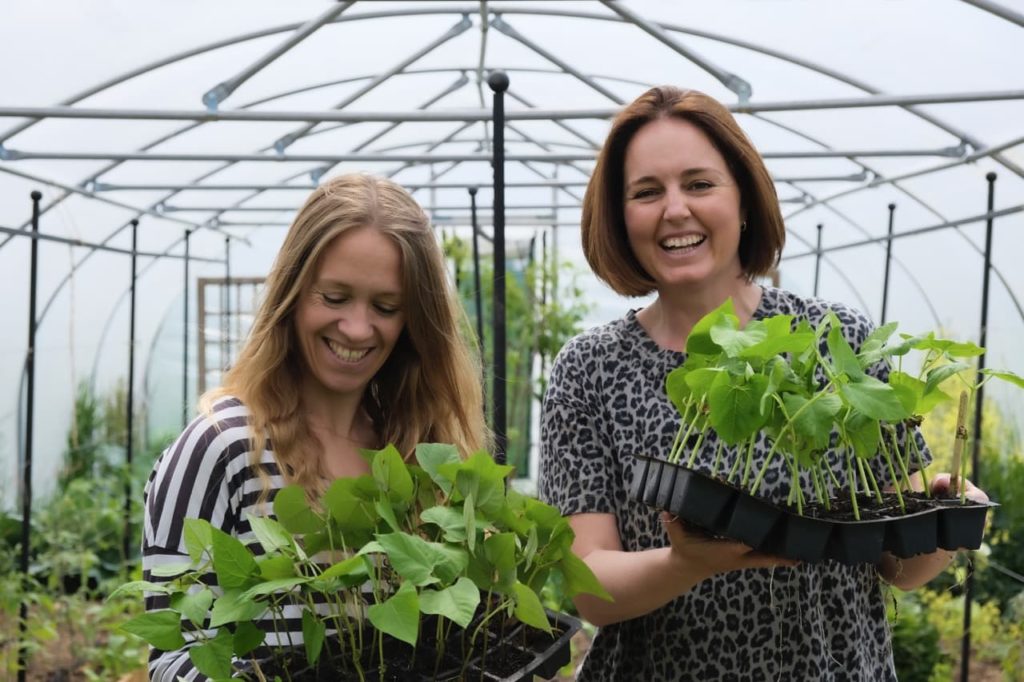
“There are a million different things that could impact your garden, so the only way for you to really understand how to grow things is to try and to fail – and that’s okay. For every failure, you’ll have a success.
“Sometimes you might have to try things several different times in different ways before it will work, but the fact that you’ve gone through that process will mean that you have learnt so much more than by just doing it by the book.
“Trial and error is 100% the best way to learn.”
“Just don’t be scared,” adds Kate. “It is intimidating if you feel like you know nothing. The online community out there will enable you to learn most of what you need. Buy that first bag of compost, get a few seeds and just try it.
“Start small and don’t be afraid.”



